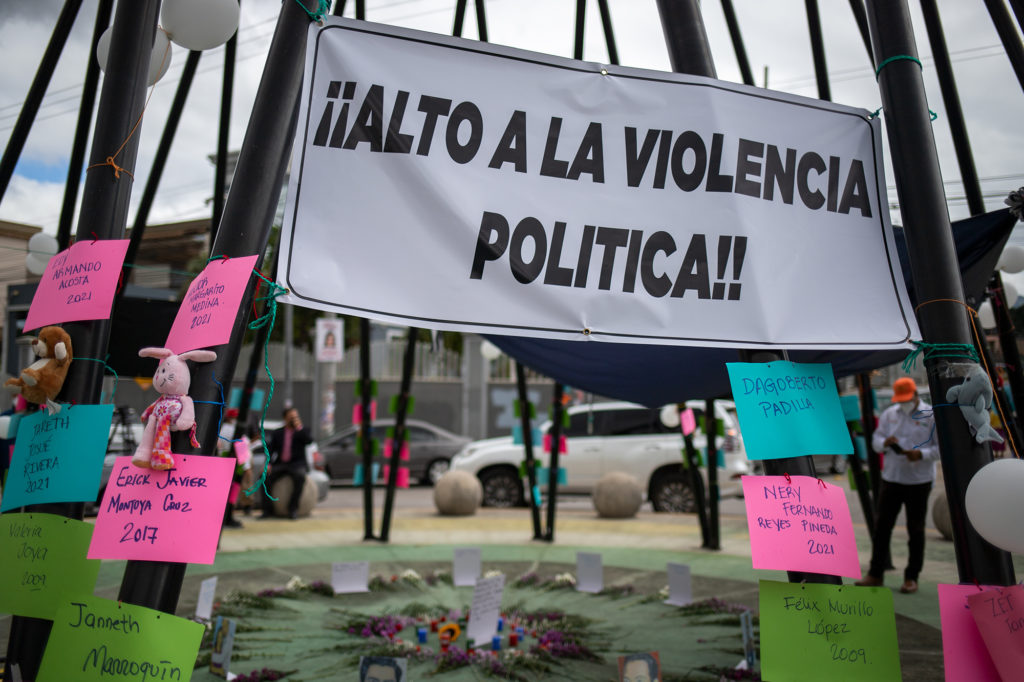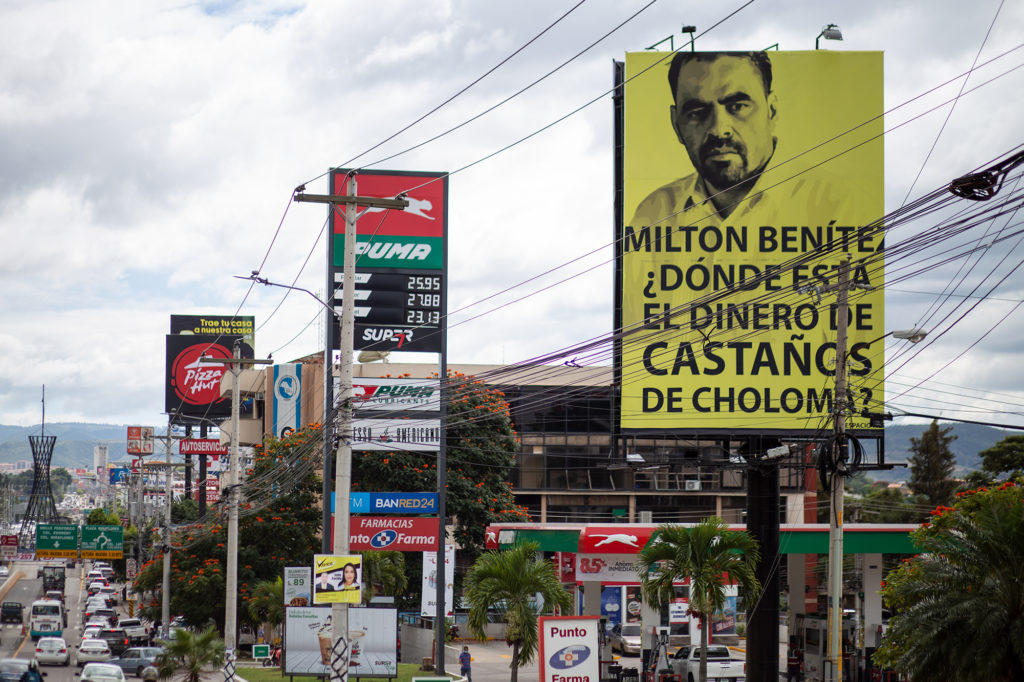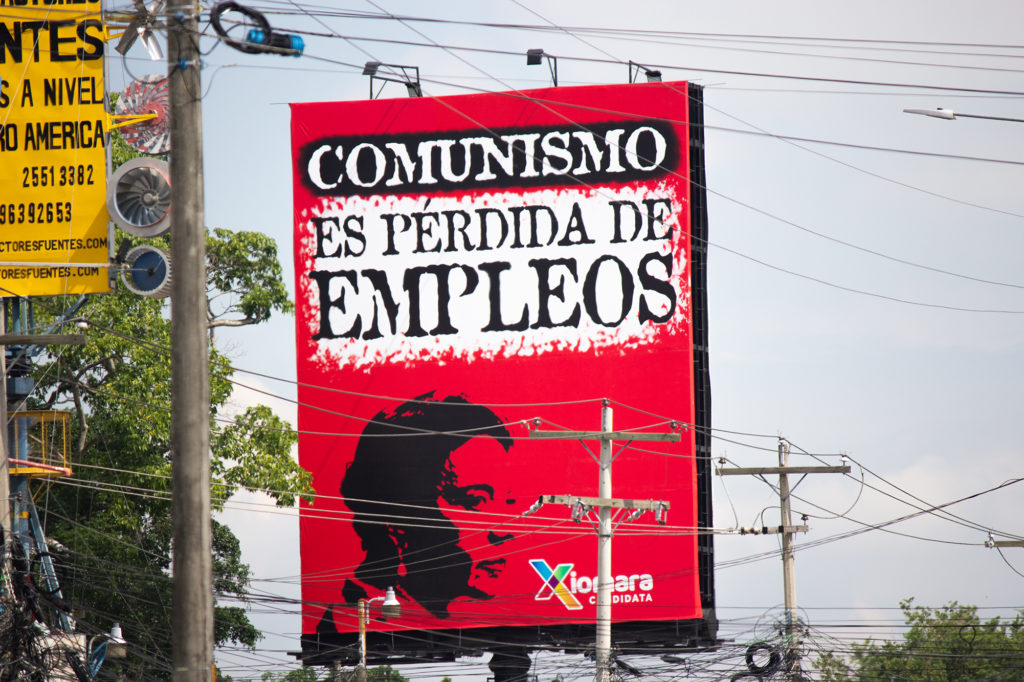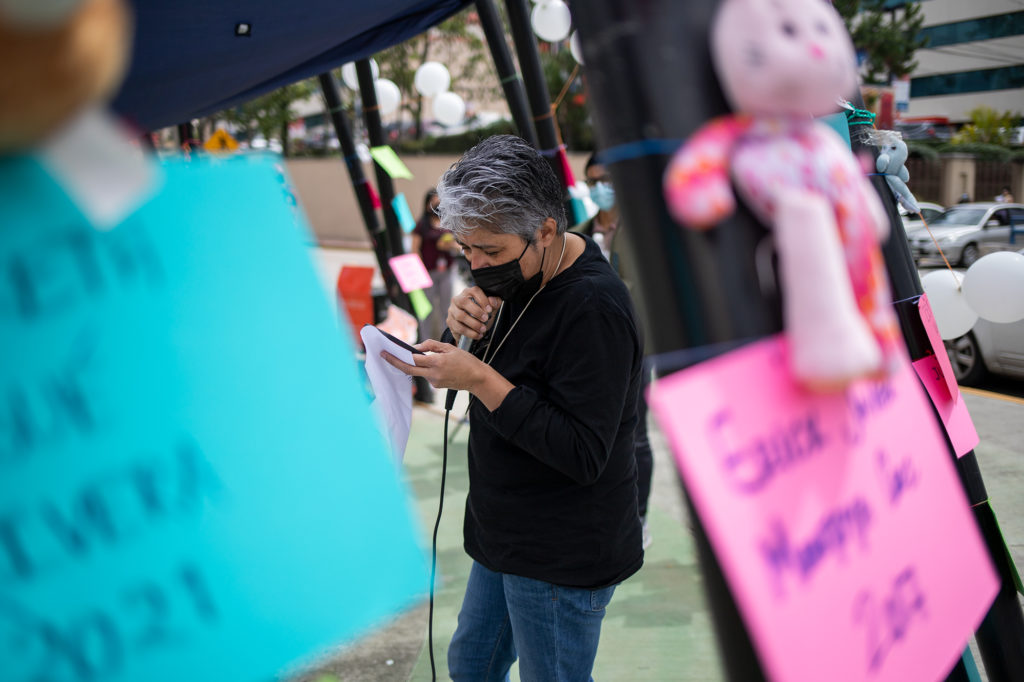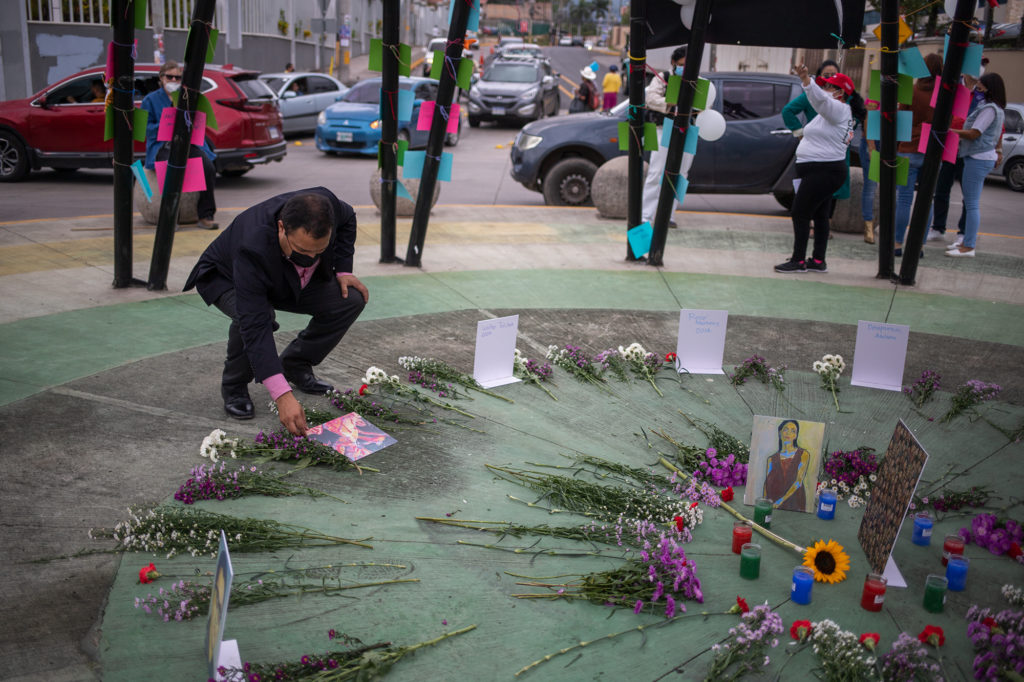As the country gets ready to vote in a few days, pre-election political violence in Honduras is surging compared to the 2017 general elections. Social organizations argue this harms the whole population, not just the candidates for political office.
By María Celeste Maradiaga
Photos by Martín Cálix and Antonio Gutiérrez
The general elections in Honduras are less than a week away and campaign rallies have often been marred by violence. The National Party’s incendiary rhetoric against the opposition has cycled through communism, abortion, and the battle against corruption.
This is nothing new in Honduran politics, but it now triggers violence that sometimes turns into assault and murders. The Violence Observatory of the National Autonomous University of Honduras (Observatorio de la Violencia de la Universidad Nacional Autónoma de Honduras ─ OV-UNAH) has tallied all the reorted episodes of political violence to date since the first announcement of primary elections in October 2020. There have been at least 27 violent deaths, 18 cases of unlawful use of force, 11 assaults, six threats, one abduction, and one case of illegal coercion. The November 15 issue of the OV-UNAH newsletter indicates that firearms were used in 36 of these cases. In this newsletter, OV-UNAH’s leader, Migdonia Ayestas, said, “The people most affected by violence and criminal acts perpetrated against political leaders and their supporters are the political bases of these parties.”
The Office of the United Nations High Commissioner for Human Rights in Honduras (OHCHR) recently called on Honduran authorities to take urgent actions to avoid a repeat of the violence that marred the 2017 elections. However, Minister of Security General Julian Pacheco Tinoco said in a November 15 press conference that the recent violence was not related to politics and that he was prepared to deploy the entire police force on election day.
Hate speech intensifies
“Honduras is a very fragile country and very prone to resorting to violence in dealing with its problems. These characteristics introduce new undertones of violence in the electoral process, and specifically in political campaigns,” says Lester Ramírez, director of governance and transparency with the Association for a More Just Society (ASJ).
Ramírez said that recent political campaigning has contributed to the violence, and social media posts have further inflamed tensions since many people don’t think about the impacts of their hate speech against candidates with different political ideologies.
Lester Ramírez believes that certain media outlets are also guilty of stoking political violence because they repeat hate speech on the major television networks and in local media.
Political analyst Josue Murillo agrees. He claims that the media sometimes function as channels for hate speech, disinformation, and public ridicule, which translates into political violence.
“The current electoral process has magnified the public’s anxiety, and has produced a sense of discouragement and hopelessness because there are no clear rules,” says Murillo. He says that topics such as communism and abortion are used by candidates in advertising spots to win votes, which ultimately causes more anxiety among the public.
Murillo argues that the media plays a crucial role during elections since it functions as a communication channel for political platforms, and as a vehicle for marketing strategies that promote candidates for public office.
The pleas to end political violence
In an interview with Contracorriente, Indyra Mendoza, the founder of the Red Lésbica Cattrachas, a Honduran lesbian network, said that the recent political violence doesn’t just affect political candidates and supporters ─ it also harms the organizations that work to defend human rights. “Whether it’s partisan political violence or violence against human rights defenders and journalists, it affects us all. We don’t have the means to work and advocate on behalf of the entire country. In 2009 alone (the year of the coup d’état), 31 people from the LGBT community were murdered in only six months,” said Mendoza.
Mendoza believes that hate speech in Honduras against the LGBT+ community and organizations that fight for women’s sexual and reproductive rights “has been discredited,” because, “Honduras has grown up and now realizes that it shouldn’t backslide into these types of campaigns. But when hate speech turns into murder, that’s getting out of hand.”
Congressional representative Jari Dixon, of the Liberty and Refoundation Party (Libertad y Refundación – Libre) is running for reelection and believes that protests against political violence should be directed towards political leaders, who should be urged to stop the violent rhetoric that is replicated by their supporters. In an interview with Contracorriente, Dixon appealed to the media to stop repeating hate speech and to help in creating a peaceful and harmonious electoral process.
“In the Libre Party, we don’t like that our candidate Xiomara Castro is depicted as a knife-wielding murderer attacking a pregnant mother. That doesn’t help at all ─ it only produces more violence. I believe that leaders should set an example by showing respect, regardless of a person’s political affiliation or ideology,” said Dixon.
Dixon is profiled on the “Who do I Vote For” website (in Spanish), a portal with information on more than 200 candidates. Dixon’s profile indicates his number one priority is to improve the country’s education system. He opposes the Official Secrets Law (Ley de Secretos Oficiales) and the Employment and Economic Development Zones (ZEDEs). Dixon is in favor of reinstating the Mission to Support the Fight Against Corruption and Impunity in Honduras (Misión de Apoyo Contra la Corrupción y la Impunidad – MACCIH), and supports the creation of an autonomous human rights entity.
Demonstrators protest the National Party’s campaign tactics
On November 15, the We Are Many (Somos Muchas) and November 25th movements filed a complaint against David Chávez, the president of the National Party and candidate for mayor of Tegucigalpa, denouncing his anti-women speeches and hate campaigns.
In a demonstration at the National Electoral Council building, these organizations demanded that the election oversight body apply the appropriate sanctions against Chávez, and that he halt the attacks against women, women’s organizations, and female candidates in the remaining days before the election.
Neesa Medina of Somos Muchas said, “This [National Party] campaign violates the Electoral Law, the Constitution of the Republic, and international treaties. Their campaign … is provoking even more hate speech.”
However, some National Party candidates also claim to be victims of violence by the opposition. Congressional representative Johanna Bermudez, a National Party candidate for reelection, stated in an interview with Contracorriente, “I’m a woman who has been morally, psychologically and physically attacked by political opponents throughout my political career. But I have had to understand that only crows attack eagles.” The idiom refers to the way an eagle will ignore the crow, eventually flying higgh and letting the crow fall off due to lack of oxygen.
“I have always opposed campaigns that encourage violence, and we have been trained [in the National Party] to find common ground. That’s why it seems unfair that the National Party has been accused of conducting a hate campaign. They are smearing us in the media just because we belong to a certain political party,” said Bermudez.
Johanna Bermudez’s profile on the Who do I Vote For website (in Spanish) indicates her priorities as government transparency, the fight against corruption, tourism, employment, education, and health. She is against reinstating MACCIH and is in favor of the security tax.
On October 17, the National Party candidate for president, Nasry Asfura, signed an Agreement for Honduras with Oswald Canales, the president of the Evangelical Fellowship of Honduras (Confraternidad Evangélica de Honduras – CEH). The agreement contains promises to reject abortion, to define marriage as a union of a heterosexual couple, and to strengthen relations with Israel.
Just two days later, the Network of Pastors and Evangelical Leaders of Honduras (REPLIEH), the Lucas Health Foundation, and the Latin American Theological Fraternity of Honduras jointly sent a letter to the CEH denying having been consulted before Asfura and Canales signed the Agreement for Honduras. The letter characterizes the unilateral action by Canales as an “abuse of authority that violates the objectives of this fellowship and depicts us as an organization that serves partisan political interests.”
Read (in Spanish): How the religious affiliations of Honduran politicians influence the public discourse
On November 18, the Multisector Round Table (Mesa Multisectorial), composed of more than 22 civil society organizations, including members of the country’s business, academic and religious sectors, issued a statement calling on all political parties to commit to a peaceful electoral process. Soon after this declaration, Cesar Chirinos, a representative of the National Association of Public Employees of Honduras (ANDEPH), stated that the Multisectoral Round Table has considered proposing a curfew that would take effect after the polls close on November 28.
ASJ’s Lester Ramírez thinks that the violence may get worse in the days before the election, but that it could also strengthen the resolve of Honduran citizens to exercise their right to vote. “We’re in a tense prelude to the election, and if this level of violence continues, I anticipate many people won’t go out and vote. In fact, this may be a strategy to demobilize the independent voters that aren’t beholden to a political party,” said Martinez.
“We’re in a tense prelude to the election, and if this level of violence continues, I anticipate many people won’t go out and vote,” said Lester Martinez of the Association for a More Just Society (ASJ).

